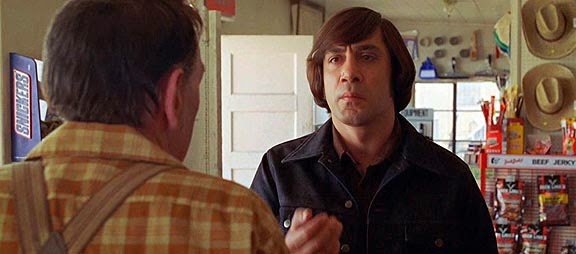The World Cup could be played on a sandlot and still be a major event, watched by hundreds of millions of viewers, due to the quality of the competition and the skilled participants. But it is more than a sporting event. It is the Super Bowl of international team athletic contests with all the pomp, circumstance and distractions that make it more than a game. Which is why, throughout the competition, there have been reminders why the choice of Qatar as the site for FIFA2022 was a travesty.
Forget the FIFA governing body bribes. Or the 6,500 deaths associated with construction of the eight venues and visitor accommodations. Or the unfulfilled promises to those immigrant laborers who were able to survive the heat and accommodations. Or Qatar’s history of civil rights violations. Those have been well-documented. My focus is on the evidence which has emerged during the games.
#1: Empty Seats. The capacity of the eight newly-constructed venues range from 44,089 at 974 Stadium in Ras Abu Aboud to 88,966 at Lusail Stadium located in its namesake city. According to HUKOOMI.COM, the Qatar e-Government website, the “intended audience” includes visiting students, tourists and business owners as well as resident parents, business owners and employees. Keep in mind Qatar’s population is 2.9 million, not enough to fill the seats once, much less multiple times over the four week tournament.
Compare this to some of the venues announced for the 2026 World Cup co-hosted by the USA, Mexico and Canada. Matches at the Meadowlands will be within close proximity to a metropolitan tri-state population of 19.8 million people. Similar numbers for Toronto, Mexico City and the other 13 sites ensure every seat will be filled even if the field is expanded to 48 or 62 teams, something which is under serious consideration.
#2: To ensure the pitch (playing surface) at each of the eight venues are both functionally and aesthetically up to FIFA standards, they have been overseeded with rye grass, a winter variant needed when the contest was moved from June/July to November/December to avoid the brutal summer heat of Qatar’s desert environment. Still, the pitches have been constantly watered and artificially cooled to ensure their consistently. Not surprisingly, this has resulted in complaints the surfaces are more slippery than in past years.
#3: Broken promises. Perhaps the most publicized reversal was the decision by Qatari officials, two days before the opening ceremonies, to ban alcohol consumption in and around the stadiums. This was contrary to the commitment made as part of Qatar’s bid to host the games in which they agreed to allow alcohol in designated stadium areas. AB InBev, Budweiser’s parent company, is the single largest FIFA sponsor and surely would have opposed the site selection if Qatar had been upfront about these restrictions.
Less reported was Qatar’s promise to provide kosher meals and access to prayer services for Israeli and other Jewish attendees. Claiming security concerns, the Qatari officials reneged on both commitments.
#4: Subsidizing foreign fan attendance. Concerned about lack of attendance by fans of the other national teams, Qatar created the Fan Leader Network Programme under which they promised to pay for airfare, lodging, match tickets and per diem for handpicked attendees from the 31 other nations represented at the tournament. In return, these anointed attendees were expected to “report any social media posts which were critical of Qatar.” (New York Times, 11/7/22) Following international press disclosure of the program, the Qatari Supreme Committee for Delivery and Legacy, the body established in 2011 to oversee preparation and conduct of the games, suspended the per diem payments.
#5: Screening attendee apparel. Friday, Kevin Amirehsani and his sister Kiana were prevented from entering the Iran/Wales match until Kiana changed out of her “Woman. Life. Freedom.” t-shirt. Today, it was three Iranians–Saed, his wife Negin and friend Kiyarash–who were detained for wearing similar apparel. On Saturday, World Cup security demanded German soccer fan Bengt Kunkel and a friend surrender their rainbow colored armbands before they were allowed to attend the France/Germany match.
So much for delivery and legacy. The regime established by the Supreme Committee must have taken its game plan out of The Art of the Deal when it comes to contracts, Florida’s Stop Woke and Don’t Say Gay Acts when it comes to tolerance and Texas’ anti-abortion law when it comes to women’s rights. Who says the world doesn’t look to the USA for leadership? At least the autocratic world still does.
SPEAKING OF IRAN
Yesterday, the government of Iran demanded the United States be expelled from the World Cup after the U.S. Soccer Federation (USSF) posted a picture on its social media sites of the Iranian flag sans the Islamic Republic logo, as it appeared during the reign of Shah Mohammad Reza Pahlavi. The act was designed to show solidarity with protesters following the death of Mahsa Amini at the hands of Iran’s “morality police” for refusing to wear a hijab.
One would hope the USSF could have been much smarter in finding a way to show support for the protesters. Does anyone honestly believe the USSF would be any less offended if the Iranians had posted the Union Jack as the USA standard to sympathize with Black Lives Matter protesters? If the USSF thinks it is appropriate to feature the flag of their pre-revolution monarch to “stick it to” the Iranians, why would it not be equivalent to question the legitimacy of the current U.S. government by displaying the banner of America’s own pre-revolutionary monarchy?
For what it’s worth.
Dr. ESP


